We Can’t Talk About Racism Without Social Emotional Skills
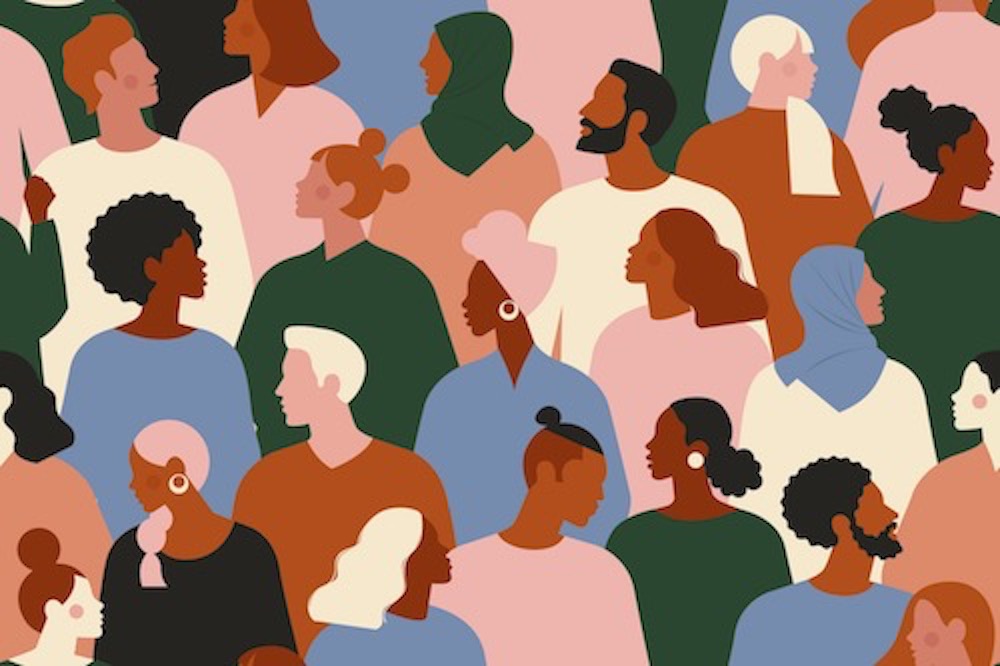
“When we equip our young people with social and emotional skills, they have the tools to further dismantle the racial inequities of our time.”
Imagine being a school leader in New Mexico. This past year has been the most challenging of your career. The impact of the pandemic and the visibility of racist violence has physically and psychologically impacted you, your students, and their families. Despite this reality, you maintain a commitment to creating safe and more equitable educational conditions for students, especially those that have historically been excluded and marginalized.
Now imagine showing up for a school meeting where you are confronted with a group of angry and passionate parents. They are demanding to speak with you. They proclaim, “Critical race theory teaches children how to be racist. It’s abusive. It discriminates against one color.” They demand to see the school’s curriculum and want to defund any programming that focuses on social and emotional learning. One parent suggests, “How about just sticking to good old fashion academic excellence and the Bible?”
Pause. What is coming up for you at this moment? What sensations are you feeling in your body? Maybe you feel your heart rate becoming elevated? Knot in your stomach? Shoulders becoming tense?
What are the thoughts that are occupying your mind? What are some of your fears and worries? Are your thoughts defensive? Empathetic?
What would you need in that moment to feel capable of responding to those parents with integrity? What would be the steps (as an individual and a leader) needed to move through those emotional, contentious conversations?
This scene and the quotes above come from a real parent group in Georgia called the “No Longer Silent Majority,” described in an article written in the Atlanta Journal-Constitution in May of this year.
It described a larger, mounting attack on equity-centered educational reform and social, emotional, and academic learning efforts; efforts which courageously lean into conversations and proposed action that get at the roots of institutional racism in our educational system. Unfortunately, this narrative and limited understanding regarding Critical Race Theory (CRT) and social and emotional learning (SEL) has been gaining steam across the nation, including areas of our own state.
The purpose of this thought experiment is to deepen self awareness regarding our own reactions, and discomfort, to emotionally difficult (yet necessary) conversations about race. These hard, uncomfortable conversations require self-management, relationship skills, and social awareness — cornerstones of social and emotional development — in order to face deeply rooted racial beliefs, dismantle oppressive practices, and make transformational change.
Our ability to hold these difficult conversations with bravery, empathy, and deep listening determines whether our education system will drive equity forward, or sow division and harm.
While these skills are so obviously essential for equity work, many districts and schools seem to be missing the intrinsic connection to social and emotional learning. Separating SEL and equity work will only impede anti-racist reform and risk having SEL initiatives become what Dena Simmons calls “white supremacy with a hug.”
Student SEL Skills in Action
When we equip our young people with social and emotional skills, they have the tools to further dismantle the racial inequities of our time. At Future Focused, we’ve seen our students and interns facilitate and hold space for a variety of difficult, controversial, and vulnerable topics, and become stronger communicators, empathizers, and problem solvers.
For example, during this past year X3 intentionally incorporated healing-centered, trauma-informed SEL practices into group internship experiences. These included relationship building and mindfulness practices.
We asked the interns to reflect on their individual and shared experiences related to topics such as educational racism, economic development, public safety, and mental health. They would then share with each other (building self and social awareness for others) and collectively vision what a safer, healthier future for themselves, their peers, and their community could look like. This resulted in real-world recommendations that push for transformative change to policies, practices, and systems.
Building these SEL skills into our internship experiences has successfully built trust and community among the interns and their mentors allowing for deeper learning.
“The X3 internship has definitely helped me grow as a person. I initially came into the internship angry about a situation where I did experience racism in the education system but throughout the whole experience, I learned I was not alone,” one intern told us at the end of their session.
“Instead of just being selfish and only thinking about my situation, I learned about others. If I can't help myself I can definitely help others and their future. I became more mindful. The X3 internship has also opened a door to a senior project!"
In conversations about racial equity and bias inside the education system, we saw the students have productive, empathetic conversations about each others’ lived experiences.
“I appreciate the safe space each intern had,” another intern told us. “It was such an open space where everyone was able to talk about personal issues that others were able to reflect on them. I just really appreciate the space and kind words everyone had.”
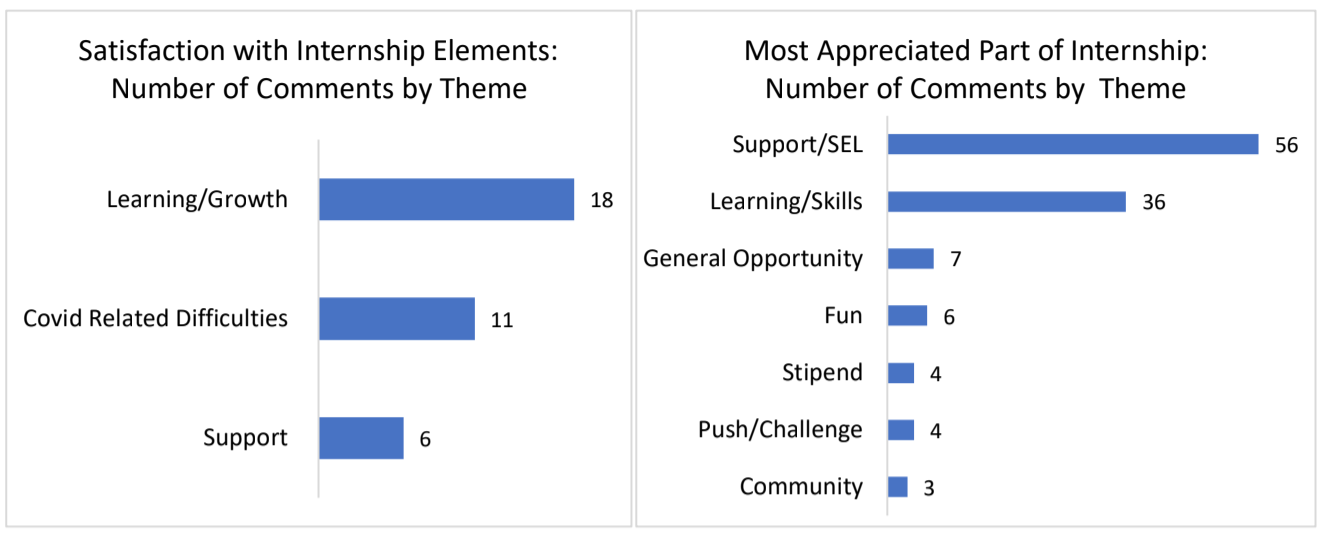
Equity in Employment Opportunities
Measurement and equity also go hand in hand. Understanding who is gaining access to work experience and the nature of that experience is critical if schools hope to ensure that all students, not just the best resourced or well connected, are set up for professional options down the line.
Troubling data on college students’ work experiences suggests that although students across the socioeconomic spectrum work at similar rates, the nature of the work differs by class, with higher-income students more likely to access internships and apprenticeships directly aligned with their career goals.
High schools looking to increase access to work experience should attend to looming gaps like these. Comp Sci High School, a high school model with a focus on combining inquiry-based learning, work-based learning, and restorative practices offers rigorous academics alongside computer science curriculum. Students are asked about how the connections they are forging in the course of work-based learning connect to their future goals. Survey items include: “I met with an adult or older peer who did the type of work I am interested in for my future” and “I met with an adult or older peer who I will reach out to in the future to help me with my job/career goals.”
Building students’ access to work experience is a critical investment to arm more students’ for the future, especially as the recession shuts young people out of jobs.
Moreover, expanding access to experiences while also collecting data mark an important stride in high school work-based learning models. Better data on networks—not just skills—can lend program staff, students, and employers transparency into whether students are actually accessing the well-documented social upsides that work experiences can offer.
Teach the Teachers, Too
We can all see the benefits of teaching students these essential social and emotional skills, but we often neglect the needs of teachers and educators themselves.
As we continue to confront our country’s racist past, reform our curriculum to correct for white supremacist bias, and wrestle the ongoing debate around Critcal Race Theory, our leaders need SEL skills more than ever.
Researchers at Panorama Education write, “In order to cultivate students’ social-emotional skills, the adults in your building also need to feel supported and valued. Promoting student SEL starts with adults.”
Without SEL skill-building within systems, leadership, and individual educators, we won't be able to engage in the courageous, necessary conversations about equity and racism.
Putting It All Together
In order for social and emotional learning curriculum to be truly and deeply successful, we must implement these practices on both a micro and macro scale. To that end, Future Focused is working in two major ways to implement SEL on a personal and systems level.
In the 2021-2022 school year, we will begin implementing paid internships for Youth Mental Health First Aid and Youth Peer Support training.
In collaboration and on behalf of the Leadership Schools Network (LSN), Future Focused was awarded $20,000 in grants from SEL in Action and the PNM Resources Foundation to support the strategic planning, capacity building and rollout of Youth Mental Health First Aid (for staff) and Teen Mental Health First Aid (for LSN students) across all four of the LSN schools.
Additionally, funding will be used to provide paid internships for a cohort of LSN seniors and recent alumni to be trained in Youth Mental Health First Aid and Youth Peer Support to set them up for interning at their respective schools during the Spring 2022 semester. Their internship will support the rollout of the Teen Mental Health First Aid curriculum, while offering peer support to students.
On a systems level, Future Focused was a founding member of SEL4NM, the new state chapter of SEL4US, which promotes and supports high-quality, equity-centered social emotional learning (SEL) for educators and other cross-sector stakeholders across New Mexico.Additionally, we’re proud of our partnership with the NM Public Education Department to workshop and publish a new state-wide social emotional framework to help systematically implement SEL practices into all schools and districts.
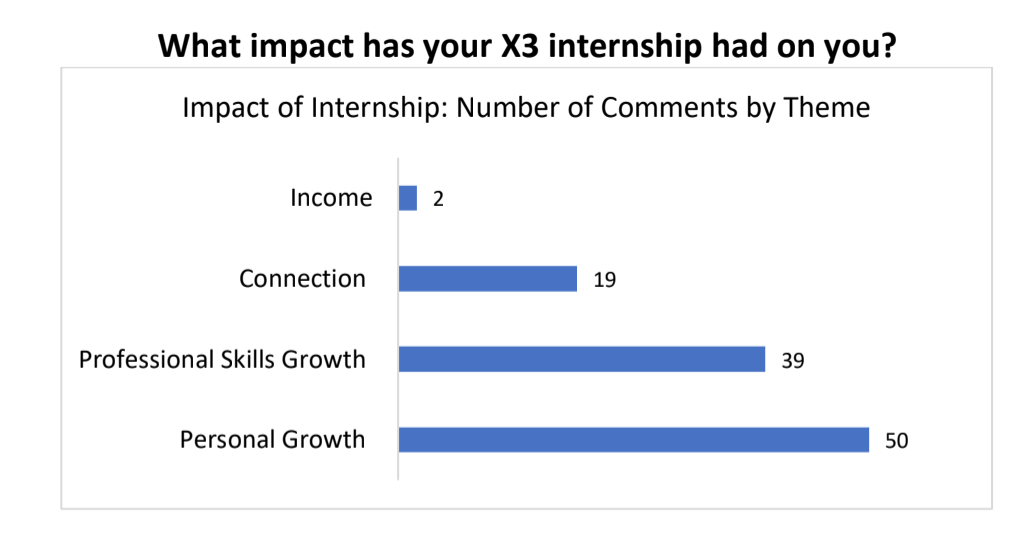
Personally there is nothing more rewarding than when our X3 interns tell us SEL support made them more confident and determined to follow their dreams.
One intern told us recently, “Overall [my internship] has really inspired me to keep pushing for an education that fulfills me, and I will continue to ask hard questions in the future. This internship has really lit a fire under me and pushed me to continue fighting for change.”

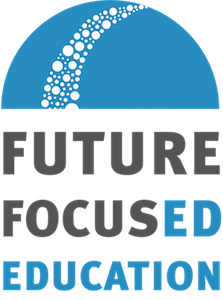
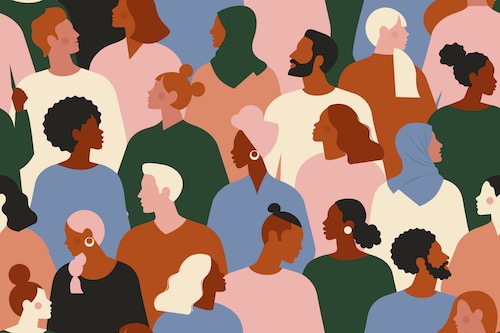
Comments
Clear, welcome, necessary and well- referenced article. Essential reading for leaders in every field. Thank you FFEd and LSN for setting out reliable signposts to indicate an equitable, kind, skillful way forward in the world.
This is extremely helpful and there are also strong links with Restorative Practice in education